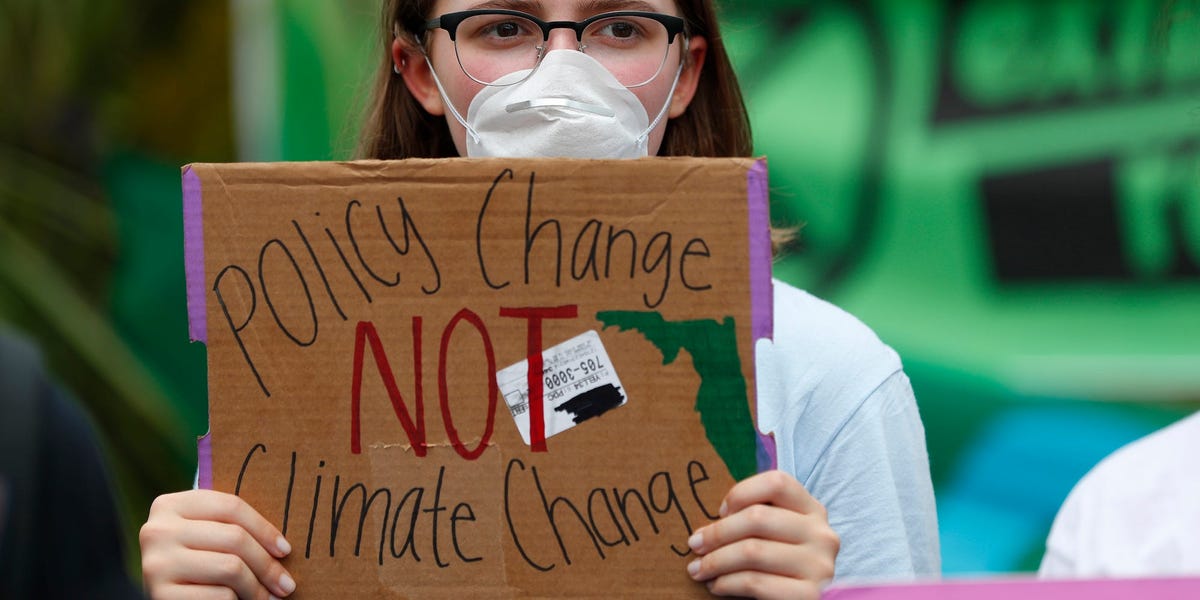Late last month, computing giant Dell cut part of its marketing team that focused on sustainability and other ESG-related marketing roles, Business Insider has learned.
This included roles responsible for areas such as ESG marketing communications, sales enablement, influencer marketing, and thought leadership, according to people familiar with the matter.
“We are always assessing our business to remain competitive and to ensure we are set up to deliver the best innovation, value, and service to our customers and partners,” a Dell spokesperson told Business Insider. The spokesperson added sustainability continues to be at the core of Dell’s business strategy.
Separately, Unilever this month disbanded its “digital sustainable choices team,” a small global group that sat within its marketing department, according to three sources familiar with the matter.
Previously known as LEAP — Little Everyday Actions for the Planet — the team was first established in 2019 as a central incubator, designed to find different ways to encourage consumers to change their behavior. Staffers who were part of the team are being given the opportunity to apply for other roles within the company, the sources said.
“Our intention was always to integrate LEAP’s findings and outcomes through business groups, local markets, and respective functions; and this is what we’re currently doing,” said a Unilever spokesperson.
The spokesperson pointed out that during this year’s Super Bowl, Unilever’s Hellmann’s brand highlighted its “Waste not Taste” initiative, while Dove’s ad encouraged girls to stay in sports as they get older. And Unilever CEO Hein Schumacher in October credited its devotion to sustainability as a key factor in his decision to re-join the company as he outlined his key priorities for the company: climate, nature, plastics, and livelihoods.
Green hushing has hit the marketing world
The changes at Dell and Unilever come on the heels of the news that major Wall Street firms like JPMorgan, State Street, and Pimco had pulled out of the Climate Action 100+ coalition, a group of hundreds of institutional investors that collectively push large companies to address climate issues. Financial firms have recently come under fire from some commentators, who have labeled their ESG initiatives as “woke capitalism.”
This is feeding into a growing trend of “green hushing,” where companies stop publicizing their sustainability efforts due to concerns around regulatory scrutiny or a consumer backlash, experts say. Harriet Kingaby, head of ACT Climate Labs at the media and creative agency Media Bounty and co-chair of the Conscious Advertising Network nonprofit, said recent conversations she has had have led her to believe there is a “huge problem” with green hushing among major brands.
Mentions of ESG-related topics in public company filings decreased 85% year-over-year in the third quarter of 2023, according to analytics firm GlobalData.
Advertising agencies, too, are having to adapt as companies dial down their ESG communications. Marketing consultancy R3’s Family Tree analysis of major advertising agency holding groups this year found that only Havas still has a standalone sustainability-capability agency. Other sustainability agencies have been absorbed into wider offerings, R3 EVP of delivery Sarah Tan told Business Insider.
Brands are also panicking about market signals ranging from the cost of living crisis creating spending compromises, growth stagnating in categories such as vegan foods, and confusion about new regulations, Kingaby said, such as the EU’s proposed Green Claims Directive and the FTC’s scheduled update to its Green Guides.
“No-one wants to be Bud Lighted or fined 4% of their annual turnover,” said Kingaby. Bud Light was embroiled in controversy last year when it featured transgender influencer Dylan Mulvaney in a social media promotion, prompting anti-LGBTQ+ activists to call for boycotts of the beer brand.
Backlash over misleading claims
Guy Parker, CEO of the UK ad regulator the Advertising Standards Authority, said he is concerned that companies have become too fearful of being called out for greenwashing, and so are deciding it’s safer to say nothing, which won’t help to encourage consumers to make more sustainable choices.
The ASA has banned several ads in recent months in which it ruled brands such as BMW, Shell, and Etihad Airways made misleading sustainability claims. Separately, in the UK, Unilever’s green claims in its marketing are currently under investigation by the Competition and Markets Authority.
“Get out of the habit of making big, bold claims — that’ll get you in trouble,” Parker advised, adding that ASA research shows consumers are skeptical of this type of messaging anyway. “They’re more likely to trust more measurement, and precise, more reined-in positions because they are more credible.”
Sustainability efforts could just be evolving quietly
Green hushing isn’t all bad for corporate sustainability efforts. In some cases, sustainability roles are being reallocated to business units where they can more directly impact commercial change. Leo Rayman, head of the sustainability consultancy and venture studio Eden Lab, said that the green hushing phenomenon could suggest a sign of maturity in the space.
“Perhaps it’s a result of the crushing realization that creating a more sustainable company is a bit harder than just running a brand campaign or a stunt,” Rayman said.
Sustainability has entered a “managerial and compliance phase,” and big ad campaigns are being replaced with more nuanced and targeted messaging on social media, through influencer marketing, and internal communications, said Solitaire Townsend, cofounder of the sustainable development agency Futerra.
“Purpose and sustainability stayed in big above-the-line campaigns because it wasn’t about delivering value for the company, it was primarily about reputation and advertising in places where your boss can see it,” said Townsend.
“Green hushing is a lovely term but this is more about green shifting. And it’s massively overdue.”
Read the full article here





